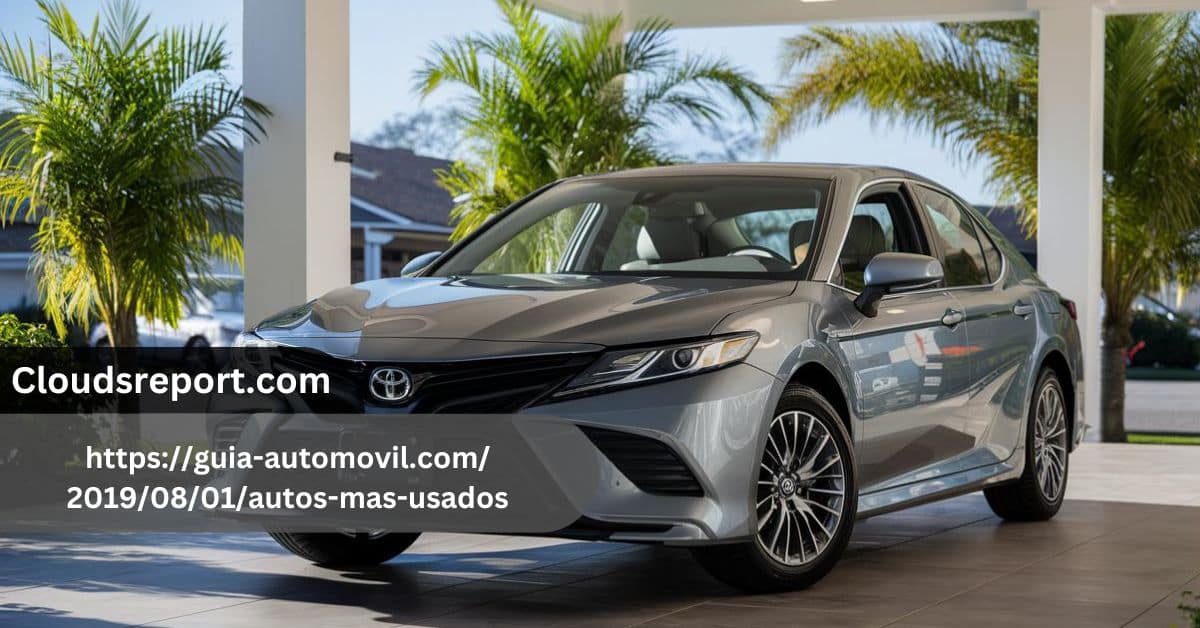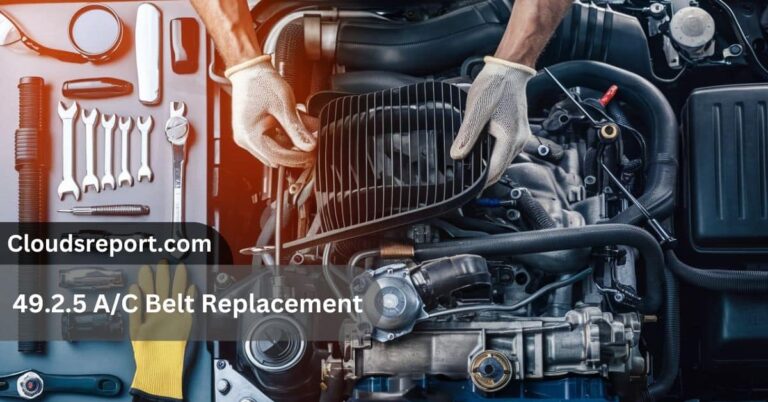https://guia-automovil.com/2019/08/01/autos-mas-usados. – The Most Reliable Used Cars in the Market!
I recently read https://guia-automovil.com/2019/08/01/autos-mas-usados and it reminded me of my own search for a good used car.
https://guia-automovil.com/2019/08/01/autos-mas-usados provides a detailed list of the most popular used cars, guiding you to find a reliable vehicle that fits your budget and needs.
Stay tuned as we look at https://guia-automovil.com/2019/08/01/autos-mas-usados. We’ll talk about the best-used cars listed there and give you helpful tips to find the right one for you.
What Tips On Inspecting Used Cars Can You Find At Https://Guia-Automovil.Com/2019/08/01/Autos-Mas-Usados?
At https://guia-automovil.com/2019/08/01/autos-mas-usados, you can learn how to check used cars carefully. The site shows you how to look for any problems, such as dents or scratches, and make sure the car works well. It helps you find out if a used car is in good shape before you buy it.
Understanding the Importance of Choosing the Right Used Car:
Before diving into the list of the most reliable used cars, it’s crucial to understand why choosing the right used car is important. Not all used cars offer the same value, reliability, and longevity.
Some may require more frequent repairs, have higher maintenance costs, or even suffer from performance issues. By carefully selecting a used car, you can save yourself from unexpected expenses and enjoy a vehicle that meets your needs.
Benefits of Buying a Used Car:
Buying a used car offers several advantages over purchasing a brand-new vehicle. Let’s take a closer look at some of the key benefits:
- Cost Savings: Used cars are significantly cheaper than new ones. You can often find a used car that’s just a few years old at a fraction of the original price.
- Lower Depreciation: New cars lose value quickly, especially in the first few years. A used car, on the other hand, has already gone through the steepest part of its depreciation curve.
- Lower Insurance Costs: Insurance premiums are often lower for used cars compared to new ones, as the vehicle’s value is a key factor in determining the premium.
- Variety of Options: The used car market offers a wide range of vehicles, from older models to those just a few years old. This variety allows you to choose a car that fits your budget and preferences.
Factors To Consider When Buying A Used Car – Don’t Miss Out!
When shopping for a used car, it’s essential to consider several factors to ensure you make the right choice. Here are some key considerations:
- Reliability: Research the reliability ratings of different models. Some brands and models are known for their durability and low maintenance costs.
- Mileage: Check the car’s mileage. While high-mileage cars can still be reliable, lower mileage often indicates less wear and tear.
- Vehicle History Report: Obtain a vehicle history report to check for any accidents, title issues, or previous repairs. This report can reveal important information about the car’s past.
- Mechanical Condition: Have the car inspected by a trusted mechanic. They can identify any potential issues that may not be immediately apparent.
- Ownership Costs: Consider the long-term ownership costs, including fuel efficiency, insurance premiums, and maintenance expenses.
Top 10 Most Reliable Used Cars According to https://guia-automovil.com/2019/08/01/autos-mas-usados:
Now that we’ve covered the basics, let’s dive into the top 10 most reliable used cars based on expert curation and real-world performance. These vehicles are known for their reliability, low maintenance costs, and overall value.
1. Toyota Camry
The Toyota Camry is a staple in the used car market, known for its reliability and longevity. With a comfortable interior, smooth ride, and excellent fuel efficiency, the Camry is a great choice for anyone looking for a dependable sedan.
- Engine Options: 2.5L 4-cylinder, 3.5L V6
- Fuel Economy: 29-41 MPG (combined)
- Key Features: Spacious interior, advanced safety features, user-friendly infotainment system.
2. Honda Accord
The Honda Accord is another top contender, offering a blend of reliability, performance, and comfort. It’s available in both sedan and coupe versions, making it a versatile choice.
- Engine Options: 1.5L turbocharged 4-cylinder, 2.0L turbocharged 4-cylinder
- Fuel Economy: 30-38 MPG (combined)
- Key Features: High-quality interior, responsive handling, robust safety ratings.
3. Subaru Outback
For those who need a vehicle with all-wheel drive and off-road capabilities, the Subaru Outback is an excellent choice. It combines the practicality of an SUV with the comfort of a sedan.
- Engine Options: 2.5L 4-cylinder, 2.4L turbocharged 4-cylinder
- Fuel Economy: 26-33 MPG (combined)
- Key Features: Standard all-wheel drive, spacious cargo area, advanced safety technology.
4. Mazda CX-5
The Mazda CX-5 stands out in the compact SUV segment for its stylish design, agile handling, and reliability. It’s a great choice for those who want a fun-to-drive vehicle with the practicality of an SUV.
- Engine Options: 2.5L 4-cylinder, 2.5L turbocharged 4-cylinder
- Fuel Economy: 24-31 MPG (combined)
- Key Features: Attractive design, upscale interior, advanced safety features.
5. Ford F-150
For those in need of a reliable and capable pickup truck, the Ford F-150 is a top choice. Known for its durability and performance, the F-150 is ideal for both work and leisure.
- Engine Options: 3.3L V6, 2.7L turbocharged V6, 5.0L V8
- Fuel Economy: 19-26 MPG (combined)
- Key Features: Strong towing capacity, advanced technology, spacious cabin.
6. Chevrolet Tahoe
The Chevrolet Tahoe is a full-size SUV known for its robust performance and spacious interior. It’s a great choice for families or those who need a vehicle with ample cargo space.
- Engine Options: 5.3L V8, 6.2L V8
- Fuel Economy: 16-20 MPG (combined)
- Key Features: Roomy interior, powerful engine options, advanced safety features.
7. Lexus RX 350
The Lexus RX 350 is a luxury SUV that offers a smooth ride, high-quality interior, and a reputation for reliability. It’s an excellent choice for those looking for a premium vehicle with long-term value.
- Engine Options: 3.5L V6
- Fuel Economy: 19-27 MPG (combined)
- Key Features: Luxurious interior, advanced safety features, smooth ride.
8. Honda CR-V
The Honda CR-V is a compact SUV that offers a spacious interior, excellent fuel efficiency, and a reputation for reliability. It’s a versatile choice for families and individuals alike.
- Engine Options: 1.5L turbocharged 4-cylinder
- Fuel Economy: 28-34 MPG (combined)
- Key Features: Spacious cabin, advanced safety features, excellent fuel efficiency.
9. Toyota RAV4
The Toyota RAV4 is a compact SUV that combines reliability, practicality, and efficiency. It’s a popular choice among used car buyers for its well-rounded performance.
- Engine Options: 2.5L 4-cylinder, hybrid options available
- Fuel Economy: 28-41 MPG (combined)
- Key Features: Standard safety features, comfortable interior, hybrid option for better fuel efficiency.
10. Nissan Altima
The Nissan Altima is a midsize sedan that offers a comfortable ride, good fuel economy, and a reputation for reliability. It’s a solid choice for those looking for an affordable and dependable vehicle.
- Engine Options: 2.5L 4-cylinder, 2.0L turbocharged 4-cylinder
- Fuel Economy: 27-39 MPG (combined)
- Key Features: Comfortable ride, advanced safety features, good fuel efficiency.
How To Inspect A Used Car Before Purchase – Ultimate Guide!
When inspecting a used car, it’s essential to check the exterior, interior, and mechanical components. For a list of the most popular used cars, https://guia-automovil.com/2019/08/01/autos-mas-usados provides valuable insights.Before purchasing a used car, it’s crucial to inspect it thoroughly to avoid any hidden issues. Here’s a step-by-step guide on how to inspect a used car:
- Exterior Inspection: Check for any signs of damage, rust, or uneven paint. Look closely at the body panels, doors, and bumpers for any inconsistencies.
- Interior Inspection: Inspect the condition of the seats, dashboard, and other interior components. Check for any unusual odors, which could indicate water damage or other issues.
- Under the Hood: Examine the engine bay for any signs of leaks, corrosion, or worn-out components. Check the oil, coolant, and other fluids to ensure they are at the proper levels and in good condition.
- Test Drive: Take the car for a test drive to assess its performance. Pay attention to the engine, transmission, brakes, and suspension. Listen for any unusual noises or vibrations.
- Check the Tires: Inspect the tires for wear and tear. Uneven wear could indicate alignment issues or other problems.
- Check the Electronics: Test all electronic components, including lights, windows, air conditioning, and infotainment system, to ensure they are functioning correctly.
Financing Options For Used Cars – Find The Best Deals Today!
Once you’ve found the perfect used car, it’s time to consider your financing options. Here are some common methods to finance a used car:
- Bank Loan: You can apply for a car loan from a bank or credit union. These loans typically have fixed interest rates and repayment terms.
- Dealer Financing: Some dealerships offer financing options for used cars. While convenient, dealer financing may come with higher interest rates.
- Personal Loan: A personal loan from a bank or online lender can be used to purchase a used car. Personal loans may have higher interest rates than car loans.
- Cash Payment: If you have enough savings, paying cash for a used car can save you money on interest and finance charges.
Common Mistakes To Avoid When Buying a Used Car – Expert Tips Inside!
Buying a used car can be a great way to save money, but it’s important to avoid common mistakes that could cost you in the long run. Here are some mistakes to watch out for:
- Skipping the Vehicle History Report: Always obtain a vehicle history report to check for any past accidents, title issues, or repairs. This report can reveal important information about the car’s history.
- Not Getting a Pre-Purchase Inspection: Even if the car looks good on the surface, a pre-purchase inspection by a trusted mechanic can uncover hidden issues.
- Ignoring the Total Cost of Ownership: Consider all costs associated with owning the car, including insurance, maintenance, and fuel. Some cars may have lower purchase prices but higher long-term costs.
- Focusing Solely on Price: While price is important, don’t let it be the only factor in your decision. Consider the car’s reliability, condition, and how well it meets your needs.
- Failing to Negotiate: Don’t be afraid to negotiate the price with the seller. Research the market value of the car and use that information to negotiate a fair price.
Maintaining Your Used Car For Longevity – Proven Maintenance Strategies!
Once you’ve purchased your used car, proper maintenance is key to ensuring it lasts for years to come. Here are some maintenance tips to keep your car in top condition:
- Regular Oil Changes: Follow the manufacturer’s recommendations for oil changes. Regular oil changes help keep the engine running smoothly and prevent damage.
- Tire Maintenance: Check your tire pressure regularly and rotate the tires according to the manufacturer’s schedule. Proper tire maintenance ensures better fuel efficiency and extends the life of your tires.
- Brake Inspections: Have your brakes inspected regularly. Worn-out brake pads or rotors can lead to decreased braking performance and increase the risk of accidents.
- Fluid Checks: Regularly check and top off all essential fluids, including coolant, transmission fluid, and brake fluid. Proper fluid levels are crucial for the car’s overall performance.
- Battery Care: Inspect the battery terminals for corrosion and ensure the battery is securely mounted. If the battery is old, consider replacing it to avoid unexpected breakdowns.
FAQs:
1. How can I find a reliable used car?
You can find a reliable used car by researching reliability ratings, obtaining a vehicle history report, and having the car inspected by a trusted mechanic. For more on reliable used cars, check out https://guia-automovil.com/2019/08/01/autos-mas-usados.
2. What are the advantages of buying a used car?
The advantages of buying a used car include cost savings, lower depreciation, lower insurance costs, and a wide variety of options to choose from.
3. Should I get a pre-purchase inspection?
Yes, a pre-purchase inspection is highly recommended to uncover any hidden issues with the car before making a purchase.
4. How can I finance a used car?
You can finance a used car through a bank loan, dealer financing, personal loan, or by paying cash if you have enough savings.
5. What should I consider when inspecting a used car?
When inspecting a used car, consider the exterior and interior condition, mechanical components, tire wear, and electronic systems. Also, take the car for a test drive. For tips on inspecting popular used cars, visit https://guia-automovil.com/2019/08/01/autos-mas-usados.
6. How can buying a used car benefit the environment?
Buying a used car reduces the demand for new car production, lowers the overall carbon footprint, and contributes to less waste by extending the life of an existing vehicle.
Conclusion:
Buying a used car is a smart and economical choice for many people. By following the tips and recommendations in this guide, you can confidently navigate the used car market and find a reliable vehicle that fits your needs.
Remember to consider all aspects of the car, from its history and condition to its long-term ownership costs. With careful research and attention to detail, you can drive home in a used car that offers great value and reliability. For more information on popular used cars, visit https://guia-automovil.com/2019/08/01/autos-mas-usados.
Latest Post:






